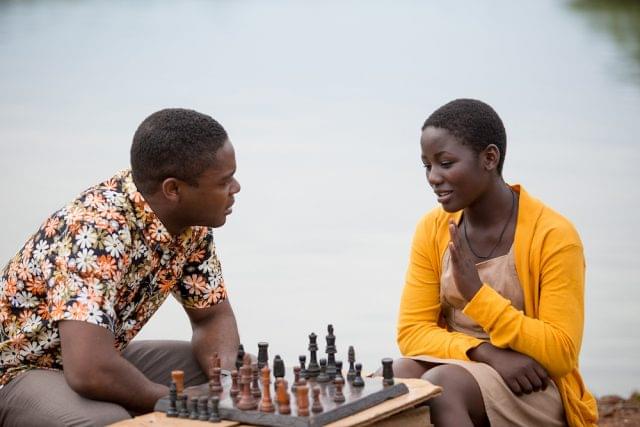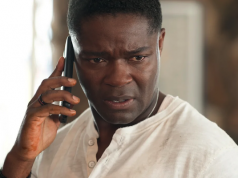
“Queen of Katwe” is a mild Disney film telling the true story of a slum-dwelling Ugandan girl who becomes a chess master (mistress?). Directed by the esteemed Mira Nair, a sensitive chronicler of cultural conflicts (“Monsoon Wedding,” “The Namesake”), the movie means well in offering something we don’t often see — an inspiring story about Africans, played by African actors — but its laborious, too-gentle pace drags it down into vegetable territory (i.e., a movie you watch because it’s good for you).
Lovely performances, though. Newcomer Madina Nalwanga stars as Phiona, a preteen girl in the village of Katwe who stumbles onto chess at a Christian youth center as an alternative to team sports. Robert Katende (David Oyelowo), the devout family man who runs the center, becomes Phiona’s coach after convincing the girl’s mother, Nakku Harriet (Lupita Nyong’o), that there’s no gambling or anything else unsavory involved.
Harriet is a widow with four children, two younger than Phiona, and an older daughter, Night (Taryn Kyaze), who disappears for days at a time with her boyfriend. The family is constantly struggling, poor even by the miserable standards of the town, and Phiona has to be a second mother to her siblings. One of them, Brian (Martin Kabanza), takes up chess with her.
It is difficult to make chess work as a cinematic event, and the film doesn’t really try. Though it technically belongs to the family of Underdog Sports Dramas (complete with snobs who say the Katwe kids are too uncouth to play in a national tournament), Phiona’s wins and losses aren’t the focus of the movie, nor does the story’s climax involve a chess match. (Instead, the story just doesn’t have a climax.) Nair, working from a screenplay by William Wheeler based on Tim Crothers’ book, is more interested in what chess means to Phiona and her family. Unfortunately, Phiona’s brief bout of arrogance after achieving some success, followed quickly by a humbling, is as far as that goes.
Nalwanga, Oyelowo, and Nyong’o exude strength and dignity, well-suited to Nair’s vision of the film as a respectable portrayal of people who are often marginalized in entertainment. It’s no small thing for minorities to see themselves represented in movies, especially a major release from an influential studio like Disney. That is in no way diminished by pointing out, reluctantly, that the movie is tedious and overlong — pleasant, nice, but lacking in compelling drama.
C+ (2 hrs., 4 min.; )





